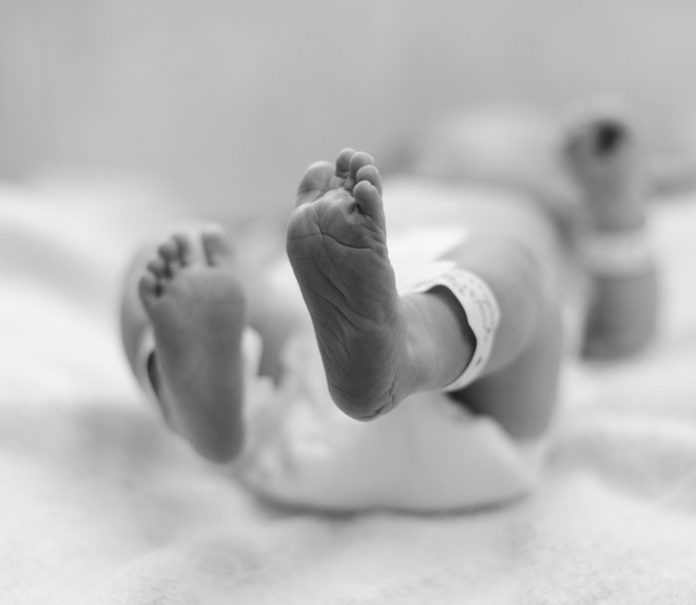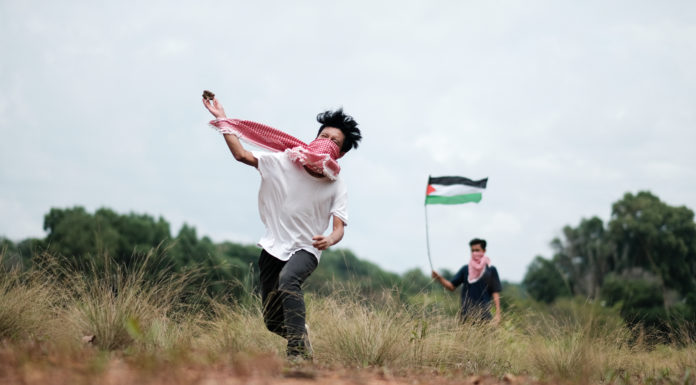COVID-19 sort of slithered into our lives like a collection of hot rocks that no one paid attention to until a huge volcano erupted. By the time people started seeking medical care, hundreds more had already caught the virus. When we were all firmly advised to remain behind closed doors until things would blow over, I became concerned about the prospect of giving birth in the midst of the pandemic. My baby was due to be born any day, which meant that I’d need to leave the security of my home for the unknown dangers of the hospital.
Early Friday morning, about a week after things had begun to erupt, I woke up to a sharp pain in my back.
Labor. The hospital.
This. Could. Not. Be. Happening.
But it was. The pain intensified. I was going to have to abandon my cozy, domestic refuge for a hospital caught up in the mayhem of a national—make that global—emergency.
I lifted my phone with trembling fingers and dialed my doula. I started to describe what I was feeling.
“First of all, calm down,” she said. “You sound like you’re panicking. Drink a glass of white wine and relax. Remember, Hashem’s in charge.” She ended the conversation on a somber note. She herself wasn’t feeling too well, and had very likely contracted the coronavirus. She wouldn’t be able to accompany me to the hospital. “But I’ll give you Rivky Goldberger’s number,” she said. “She covers for me sometimes. Bear in mind that when you do go to the hospital, you’ll need to be very careful. They’re putting mothers into quarantine and taking their babies away. Don’t volunteer any unnecessary information.”
I hung up the phone and tried to calm down. The white wine didn’t help. I was clearly in labor and I was also a nervous wreck. It was Friday. Where would I be spending Shabbos? What would happen?
Hours passed. My older children made their presence known by clinging to my skirts and begging for attention. The knot of fear in my stomach grew to mammoth proportions and I was a royal mess as I finally called Rivky Goldberger not long before Shabbos.
“I really need to go to the hospital!” I wailed. “I have to go, but I don’t want to go and I’m scared. I don’t know what to do!”
I was on the verge of hysteria. How could I give birth with a pandemic raging?
Somehow Rivky managed to piece together what I was saying, and a few minutes later she came over and we went to see a frum midwife who lived down the block.
“I suggest that you head straight to the hospital,” she said. “The baby is clearly on its way.”
The trip to the hospital passed in a blur. I was terrified of what lay ahead. Getting through admissions took forever, and by the time I was finally admitted to a room I was in no state of mind to remember anything of great import. Certainly not the fact that my brother had tested positive for COVID-19 shortly after I’d been in contact with him.
No one on the medical team asked me if I’d had contact with a COVID-19 patient, and I took that as a positive omen. Earlier in the day, when I’d called the hospital and asked them about their policy with regard to the pandemic, I’d been told that unless a mother was displaying symptoms they were treating their maternity patients in the regular fashion.
With no symptoms, baruch Hashem, I was able to follow my original doula’s advice and volunteer no unnecessary information in good conscience.
As the minutes ticked by, I felt myself handing the reins over to Hashem. It quickly became evident that I’d need a C-section, and as I was wheeled into the operating room, I felt like I was in the hands of the most loving Father possible, Who was clearly holding and supporting me.
My daughter was born four hours after I was admitted.
Then the real drama began.
When the nurse brought the baby over, I asked her not to place her on top of me. “It’s probably not a good idea,” I said. “It might not be safe because of the coronavirus.”
“Coronavirus?” The temperature in the room immediately dropped to near zero. “Have you been in contact with a COVID-19 patient recently?”
Without further ado, hazmat suits were donned, nasal swabs were taken and my daughter was whisked out of the room. Rivky was immediately instructed to leave the hospital, and I was rolled down the hallway to be put in isolation.
I was a complete mess by the time I made it to my bed. What had I done that had caused me to be treated as a leper? And what about my poor daughter? When would I be able to see her again? When would I get to hold her?
Tears streamed down my face, and it felt like an eternity before I was able to finally collect myself. I had just given birth to a new baby and I owed so much thanks to Hashem, but whatever gratitude I was feeling was overshadowed by the tremendous crisis the world was in, and by the hospital regulations that seemed to be changing on a minute-to-minute basis.
I found myself murmuring a quiet tefillah: “Hashem, please make my COVID-19 test come back negative. I don’t want anyone in the hospital to become sick because of me.”
The results didn’t arrive that day, and as I slowly got used to my bed in the isolation ward, I realized that there was a very shiny silver lining to my situation. The hazmat suits that the nurses and doctors needed to don before entering my room were cumbersome and difficult to put on, so my room was avoided as much as possible. It was a wonderful opportunity to rest up. It was supremely clear that Hashem was looking out for me in the best manner possible, even if it was strewn with difficulties.
As Shabbos turned into Motzaei Shabbos and then Sunday, my thoughts turned to my newborn daughter. I really wanted to see her face again before she received her name. I wanted to make sure that the name my husband and I had chosen for her actually suited her.





















